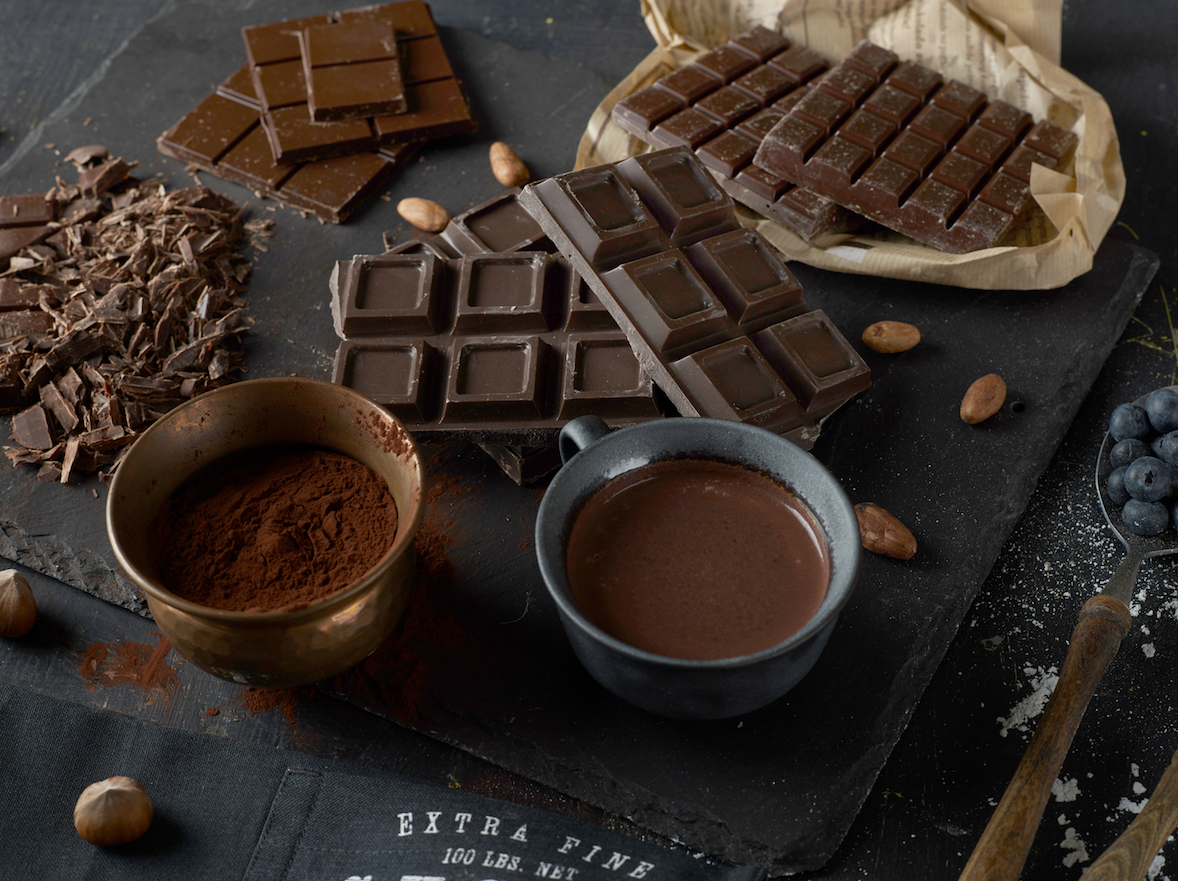Indulgence. That’s what comes to mind when I think of chocolate. Growing up, my grandpa used to eat one piece of dark chocolate every day at lunch. He always told me that scientists said it’s good for your heart, but only in moderation. I never understood the latter part of his argument. The question still remains. How beneficial is this treat to your health, and if it is such a valuable part of a balanced diet, why can’t we consume it more? What kind of chocolate should I be eating?
BEST CHOCOLATE
For those of us with a major sweet tooth, it may be hard to stay away from milk chocolate or white chocolate because they aren’t as bitter in taste as dark chocolate. However, according to CNN.com, there are plant nutrients found in cocoa beans called flavonoids that contain antioxidant and anti-inflammatory power. Dark chocolate has more flavonoids than milk does, and white chocolate isn’t even in the picture because it doesn’t contain chocolate solids. Instead it is a blend of cocoa butter, milk solids, milk fat and sugar.
The antioxidants found in dark chocolate “are believed to help the body’s cells resist damage caused by free radicals that are formed by normal bodily processes, such as breathing, and from environmental contaminants, like cigarette smoke,” according to ClevelandClinic.org. Think of chocolate as a line of defense against the bad guys, but as always, use it wisely and modestly.
LOWER BLOOD PRESSURE, HAPPIER HEART
One of the most common benefits of dark chocolate that we hear about, as I was told by my grandpa, is that dark chocolate magically helps the heart. According to CNN.com, this is actually true, but only if the chocolate is eaten in moderation and accompanied by healthy habits like diet and exercise. Scientists in Melbourne, Australia, performed a study involving 850 participants who had various intakes of chocolate with high levels of cocoa (more antioxidants), and found that those who ate dark chocolate had lower blood pressure readings.
Flavanols, the antioxidants found in dark chocolate, actually dilate blood vessels, which in turn explain the lower blood pressure. In addition, according to CNN.com, researchers uncovered in another 2015 study that, “chocolate consumption was associated with a 21 percent lower risk of stroke, 29 percent lower risk of developing heart disease and 45 percent lower risk of dying of heart disease.”
CHOCOLATE CAN BE BRAIN FOOD, TOO
Although heart health has always been the focus of dark chocolate, now there is also evidence that occasionally indulging in this treat can improve brain function as well. Flavanols not only improve blood pressure within the heart, but also help prevent memory decline. With age comes natural memory loss, but according to PBS.org, “when healthy people between the ages of 50 and 69 drank a mixture high in cocoa flavanols for three months, they performed about 25 percent better on a memory test compared to a control group of participants.” Unfortunately, chocolate is only linked to helping age-related memory loss and not that which is a result of Alzheimer’s.
The Dark Side of Dark Chocolate
The world always has to balance itself out, so naturally a delicious tasting dessert with many benefits also has its downsides. In moderation, dark chocolate is a positive addition to your diet, but too much of it can actually lead to weight gain. Chocolate is typically high in fat, calories and sugar, so CNN.com suggests cooking with natural cocoa powder and choosing chocolate bars that have a greater percentage of cocoa.
Say no to that slice of cake or the white chocolate candy bar, and instead try occasionally incorporating a little bit of dark chocolate in your dessert routine. Your body will thank you later.
Related articles:
Show Your Liver Some Love With Liver-Supporting Foods
5 Heart-Healthy Veggies To Add To Your Diet
What Is Crystal-Infused Water, And Should I Try It?

